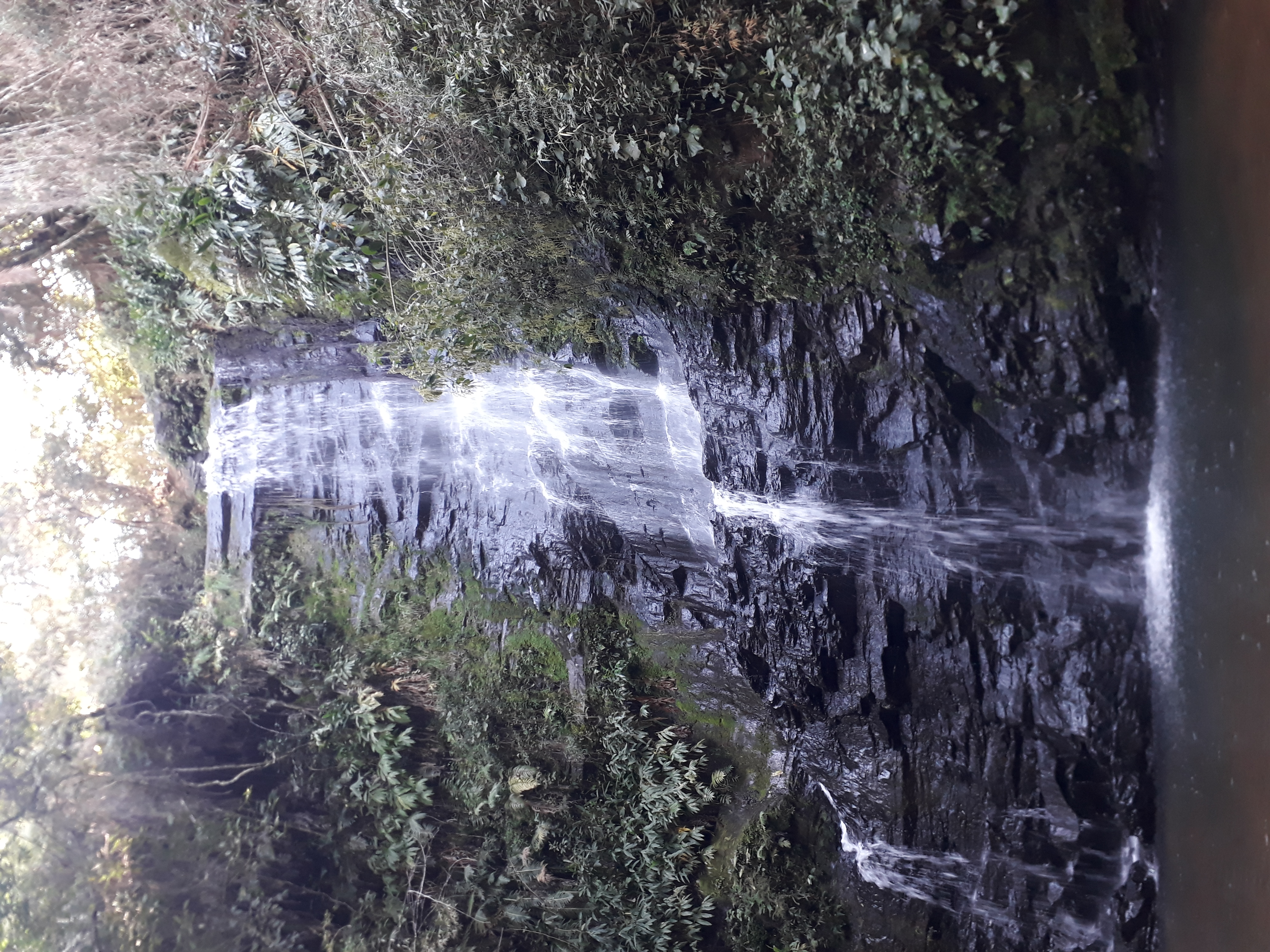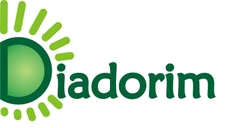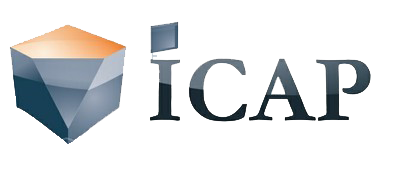A UTILIZAÇÃO DA CAPACIDADE DINÂMICA DE INOVAÇÃO E A GESTÃO ESTRATÉGICA DE PESSOAS, COMO PREDITORES AO DESEMPENHO NA INDÚSTRIA HOTELEIRA
DOI:
https://doi.org/10.29149/mtr.v6i2.6374Keywords:
Dynamic Capacity Innovation, ; Strategic Management of People, Hotel PerformanceAbstract
The present investigation aims to study the prediction relation for the best performance in the hotel industry of Greater Florianópolis. In order to do so, we sought scientific knowledge about dynamic capacity for innovation, and strategic management of people and verified their relationship with superior performance. Regarding methodological procedures, the approach is defined as exploratory quantitative. As far as its nature is an applied research. The population to be surveyed are executive hotels in Greater Florianópolis. The respondents, necessarily, held management positions in the hotels surveyed, collecting 141 questionnaires. It is classified as non-probabilistic, for convenience. The procedures for data analysis included exploratory factor analysis, confirmatory factor analysis, and modeling of structural equations. Through the analysis of the data, it can be affirmed that there is a direct, positive and significant relationship for the dynamic capacity of innovation, in the innovation dimension of services and performance, as well as strategic management of people with hotel performance. In the indirect effect, Strategic People Management measures the relationship between the two dimensions of Dynamic Capacity of Innovation, managerial innovation and service innovation, and hotel performance. For future research it is suggested that the dynamic marketing capacity can be inserted in this model.
References
Aires, J. D. M. (2017). A inovação na perspectiva de diretores de hotéis em Aveiro – Portugal. Revista Turismo - Visão e Ação, 19(3).
Araújo, R. M., & Ernesto, I, Fo. (2013). Meios de hospedagem: um estudo sobre marcas no contexto da inovação. Revista Iberoamericana de Turismo – RITUR, 3(1), 69-84.
Barney, J. B. (1991). Firm resource and sustained competitive advantage. Journal of Management, 17(1), 99-120.
Barreto, L. M. T. S., Albuquerque, L. G., & Medeiros, C. A. F. (2014). Estratégias de gestão de pessoas e desempenho organizacional na hotelaria: o papel das capacidades organizacionais. Revista Brasileira de Pesquisa em Turismo - RBTUR, 8(2), 340-360.
Budhwar, P., & Aryee, S. (2008). An introduction to strategic human resource management, in the Aston Centre for Human Resources, Strategic Human Resource Management, Building Research-Based Practice, London: PICD.
Caldas, J. N., & Martins, C. M. M. A. (2017). Gestão de pessoas no setor hoteleiro: um estudo de caso. Revista de Administração e Negócios da Amazônia, 9(4), 141-163.
Camargos, M. A., & Dias, A. T. (2010). Estratégia, administração estratégica e estratégia corporativa: uma síntese teórica. REGE Revista de Gestão, 10(1), 27-39.
Castro Junior, D. F. L.; Silveira-Martins, E.; Miura, M. N.; Abreu, J. C. (2020). Analysis of marketing capabilities, service differentiation and performance of executive hotels in the State of Santa Catarina, Brazil. INTERNATIONAL JOURNAL OF BUSINESS EXCELLENCE (ONLINE), 20, 451-470.
Castro, D. F. L. Jr., Deluca, M. A. M., Silveira-Martins, E., Miura, M. N., & Martins, A. A. M. (2016). Innovation capacity and service differentiation: Strategies for competitive advantage, study methodologies. WSEAS Transactions on Business and Economics, 3, 1-10.
Castro, D. F. L. Jr., Gonçalo, R. C., Rossetto, C. R., & Deluca, M. A. M. (2016). Estudo dos reflexos das capacidades mercadológicas no desempenho da hotelaria executiva em Santa Catarina. Faces: Revista de Administração. 15(1), 44-63.
Castro, D. F. L. Jr., Gonçalo, R. C., & Rossetto, C. R. (2014). Diferenciação de serviços: construção e validação de escalas. Faces: Revista de Administração, 13, 46-64.
Chadha, A. (2009). Product cycles, innovation, and exports: a study of indian pharmaceuticals. World Development, 37(9), 1478-1483.
Costa, R. C., & Nunez, C. V. (2016). Mercado de bioprodutos fitoterápicos e fitocosméticos: gestão, tecnologias e inovação. Revista Fitos, 10(3), 220-372.
Deluca, M. A. M., Gonçalo, C. R., Castro, D. F. L. Jr., & Pereira, M. F. (2017). Capacidades de inovação em serviços: um estudo nos supermercados em Santa Catarina. Revista Ibero-Americana de Estratégia – RIAE, 16(1).
Echeverria, E. L., Crepaldi, M. L. S., & Bianchi, E. (2017). O recrutamento, seleção e treinamento e seu impacto no desempenho da função na linha de produção. Revista Faipe, 3(1), 7-15.
Escobar, M. A. R., Lizote, S. A., & Verdinelli, M. A. (2012). Relação entre orientação empreendedora, capacidade de inovação e munificência ambiental em agências de viagens. Turismo: Visão e Ação, 14(2), 269-286.
Freitas, J. C. T. (2012). Estratégia organizacional: utilizando a política de treinamento e desenvolvimento como vantagem competitiva. Anais do Simpósio de Excelência em Gestão Tecnologia - SEGET. Niterói, RJ, Brasil, 9.
Gonçalves, C. A. M. M., & Bahia, L. R. G. (2011). Gestão Hoteleira. Manaus: Cetam, E-Tec Brasil.
Hair, J. Jr., Black, W. C., Babin, B. J., & Anderson, R. E. (2010). Multivariate data analysis. 7th ed. Upper Saddle River: Prentice Hall.
Irving, M. A., & Fragelli, C. (2012). Turismo inclusivo: conceito vazio ou oportunidade de inovação em planejamento turístico? Revista Turismo & Desenvolvimento, 3(7/18), 1431-1440.
Liao, S. H., Fei, W. C., & Chen, C. C. (2007). Knowledge sharing, absorptive capacity and innovation capability: an empirical study of Taiwan’s knowledge intensive industries. Journal of Information Science, 33(1), 340-359.
Liao, S. H., Wu, C. C., Hu, D. C., & Tsuei, G. A. (2009). Knowledge acquisition, absorptive capacity, and innovation capability: an empirical study of Taiwan's knowledge-intensive industries. International Scholarly and Scientific Research & Innovation, 3(5), 338-345.
Machado, D. D. P. N., Dreher, M. T., & Gorni, P. M. (2009). Inovação em serviços turísticos: a percepção desse processo em agências de viagens. Observatório de Inovação do Turismo. 4(1).
Machado, L. A. N. ; Castro Júnior, Deosir Flávio Lobo De ; Mondo, T. S ; Silveira-Martins, E.; Abreu, J. C. (2019) . STRATEGIC HUMAN RESOURCES MANAGEMENT AND HOTEL PERFORMANCE. TOURISM & MANAGEMENT STUDIES, 15, 65-79.
Menguc, B., & Auh, S. (2006). Creating a firm-level dynamic capability through capitalizing on market orientation and innovativeness. Journal of the Academy of Marketing Science, 34(1), 63-73.
Ministério do Turismo - MTUR (2017). Marcos Conceituais. Brasília: MTUR.
Nichele, J., Stefano, S. R., & Raifur, L. (2015). Análise da remuneração estratégica para atrair e reter colaboradores: a visão dos pós-graduandos. Revista de Carreiras e Pessoas. 5(2), 212-231.
Organização Mundial do Turismo - OMT (2017). Why tourism. 2017. Madrid: OMT.
Penrose, E. (1959). The theory of the growth of the firm. London: Oxford University Press.
Petrocchi, M. (2002). Hotelaria: Planejamento e gestão. São Paulo: Futura.
Pimentel, H. (2016). O papel da gestão de pessoas no turismo. Revista Lusófona de Economia e Gestão das Organizações, 4, 81-111.
Richardson, G. B. (1972). The organization of industry. Economic Journal. 82, 883-896.
Santos, J. A., & Estender, A. C. (2016). Qualidade de vida e o impacto na rotatividade no setor hoteleiro. Revista FATEC Guarulhos: Gestão, Tecnologia & Inovação. 2(1), 82-95.
Schumpeter, J. A. (1997). A teoria do desenvolvimento econômico: uma investigação sobre lucros, capital, juros e o ciclo econômico. São Paulo: Nova Cultural.
Shoham, A., Vigoda-Gadot, E., Ruvio, A. A., & Schwabsky, N. (2012). Testing an organizational innovativeness integrative model across cultures, Journal of Engineering and Technology Management, 29(2), 226–240.
Silva, G. A., & Souza, L. A. S. (2017). O impacto causado pelo clima organizacional no desempenho e na qualidade de vida da equipe de trabalho do Hotel Hardman - João Pessoa, PB. Revista Campo do Saber. 3(1).
Souza, L. H., Pena, L. C. S., & Moesch, M. M. (2017). Conhecimento e sinergia como indutores da inovação regional em turismo: o caso do Observatório do Turismo no Distrito Federal (Brasil). Revista Brasileira de Pesquisa em Turismo - RBTUR. 11(1), 19-38.
Tomasia, M. T. (2000). Como motivar trabalhadores no ambiente empresarial segundo as teorias motivacionais. Londrina: FELCICAM/INBRAPE.
Tometich, P., Fracasso, E. M., & Zen, A. C. (2014). Reconfiguring the firm´s capabilities for innovation. Proceedings of the International Management of Technology Anual Conference - Science, Technology and Innovation in the age of Economic, Political and Security Challenges. Washington, DC, United States of America, 23.
Vilas Boas, A. A., & Andrade, R. O. B. (2009). Gestão estratégica de pessoas. São Paulo: Elsevier.
Wood, T. Jr. (1995). Mudança organizacional: aprofundamento temas atuais em administração de empresas. São Paulo: Atlas.
Yesil, S., Koska, A., & Büyükbese, T. (2013). Knowledge sharing process, innovation capability and innovation performance: an empirical study. Procedia - Social and Behavioral Sciences, 75, 217-225.
Downloads
Published
How to Cite
Issue
Section
License
Copyright (c) 2021 Deosir Flávio Lobo de Castro Júnior, Marcio N. Miura, Dr. Elvis Silveira-Martins, Pesquisador Jonatas Ramos

This work is licensed under a Creative Commons Attribution 4.0 International License.
Authors who publish with this journal agree to the following terms:
- Authors retain copyright and grant the journal, without cost for the journal, right of first publication with the work simultaneously licensed under a Creative Commons Attribution License that allows others to share the work with an acknowledgment of the work's authorship and initial publication in this journal.
- Authors are able to enter into separate, additional contractual arrangements for the non-exclusive distribution of the journal's published version of the work (e.g., post it to an institutional repository or publish it in a book), with an acknowledgment of authorship and its initial publication in this journal.
- Authors take full responsibility for their opinions expressed in the works published in this journal.
















